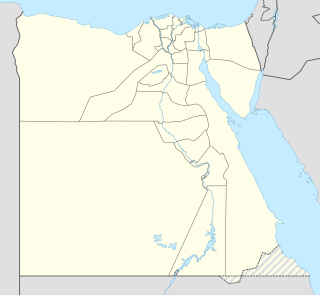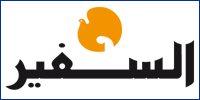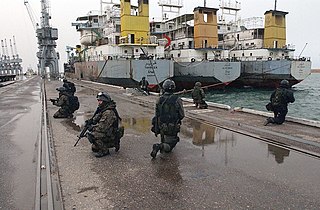The Muslim Brotherhood is an Islamic organization that was founded in Ismailia, Egypt by Hassan al-Banna in March 1928 as an Islamist religious, political, and social movement. The group spread to other Muslim countries but has its largest, or one of its largest, organizations in Egypt, where for many years it has been the largest, best-organized, and most disciplined political opposition force, despite a succession of government crackdowns in 1948, 1954, 1965 after plots, or alleged plots, of assassination and overthrow were uncovered. Following the 2011 Revolution the group was legalized, and in April 2011 it launched a civic political party called the Freedom and Justice Party (Egypt) to contest elections, including the 2012 presidential election when its candidate Mohamed Morsi became Egypt's first democratically elected president. One year later, however, following massive demonstrations, Morsi was overthrown by the military and arrested. As of 2014, the organization has been declared a terrorist group by Russia, Egypt, UAE, Saudi Arabia and is once again suffering a severe crackdown.

Operation Eagle was an Egyptian military campaign in the Sinai Peninsula, that was launched in August, 2011 to confront the Sinai insurgency. The campaign was aimed against Islamist insurgents, who had been attacking the Egyptian security forces in the Sinai and using the area as a base from which to attack Israel since early 2011. Successive Egyptian operation against insurgents in 2012, named Operation Sinai, was initially referred as the second part of Operation Eagle.
Mohamed Soliman is an Egyptian political leader, strategist and political analyst known for his criticism of the Mubarak, Morsi and Sisi regimes. Mohamed is known for his active political involvement during the 2011 Egyptian revolution. He successfully led an alliance of Liberal Students to win the 2013 Egyptian Student union elections against Egyptian Muslim Brotherhood students. Following the 2013 Egyptian coup d'état, Constitution Party elected Mohamed as a political officer to lead the party political bureau for three years. Mohamed is always featured in media for his involvement in Egypt Revolution.

Mohammed Badie is the eighth Supreme Guide of the Muslim Brotherhood. He has headed the Egyptian branch of the international Muslim Brotherhood organization since 2010. Before becoming general guide, Badie had been a member of the group's governing council, the Guidance Bureau, since 1996. He was arrested by Egyptian authorities on 20 August 2013. On 28 April 2014, after an eight-minute trial in which Badie could not present his defence, he was sentenced to death, along with 682 others who are allegedly Muslim Brotherhood supporters. He was sentenced to life in prison on 15 September 2014, and was sentenced to death on 11 April 2015, along with thirteen other senior Muslim Brotherhood members. He received a sixth life sentence on 22 August 2015 and a seventh on 8 May 2017.

Mohamed Beltagy is an Egyptian physician and Muslim Brotherhood politician. He was a Member of Parliament from 2005 to 2010, and is currently the general secretary of the Freedom and Justice Party.

The Egyptian Crisis began with the Egyptian revolution of 2011, when hundreds of thousands of Egyptians took to the streets in an ideologically and socially diverse mass protest movement that ultimately forced longtime president Hosni Mubarak from office. A protracted political crisis ensued, with the Supreme Council of the Armed Forces taking control of the country until a series of popular elections brought the Muslim Brotherhood to power. However, disputes between elected Islamist president Mohamed Morsi and secularists continued until the anti-government protests in June 2013 that led to the overthrow of Morsi in 2013, in what has been variably described as a coup d'état or as an ending to the second revolution, or both. Abdel Fattah el-Sisi, who announced the overthrow of Morsi, then became the leader of Egypt the following year, winning election to the presidency in a landslide victory described by EU observers as free but not necessarily fair. Nonetheless, Sisi's election was widely recognized, and the political situation has largely stabilized since he officially took power; however, some protests have continued despite a government crackdown. The crisis has also spawned an ongoing insurgency led by Ansar Bait al-Maqdis in the Sinai Peninsula, which became increasingly intertwined with the regional conflict against the Islamic State of Iraq and the Levant later in 2014.

The al‑Nour Party, or "Party of The Light", is one of the political parties created in Egypt after the 2011 Egyptian Revolution. It has an ultra-conservative Islamist ideology, which believes in implementing strict Sharia law. It has been described as the political arm of the Salafi Call Society, and "by far the most prominent" of the several new Salafi parties in Egypt, which it has surpassed by virtue of its "long organizational and administrative experience" and "charismatic leaders". Its political aim is to establish a theocratic state on the lines of Wahhabism like in Saudi Arabia. Saudi Arabia was found to be the main financer of the party according to the public German television news service ARD (broadcaster).

Mohamed Morsi is an Egyptian politician who served as the fifth President of Egypt, from 30 June 2012 to 3 July 2013, when General Abdel Fattah el-Sisi removed Morsi from office in the 2013 Egyptian coup d'état after the June 2013 Egyptian protests.

The Sinai insurgency is an ongoing conflict in the Sinai Peninsula, Egypt, between Islamist militants and Egyptian security forces, which has included attacks on civilians. The insurgency began after the start of the Egyptian Crisis, which saw the overthrow of longtime Egyptian president Hosni Mubarak in the Egyptian revolution of 2011.

The 2012–13 Egyptian protests were part of a large scale popular uprising in Egypt against then-President Mohamed Morsi. On 22 November 2012, millions of protesters began protesting against Morsi, after his government announced a temporary constitutional declaration that in effect granted the president unlimited powers. Morsi deemed the decree necessary to protect the elected constituent assembly from a planned dissolution by judges appointed during the Mubarak era.

The June 2013 protests were mass protests that occurred in Egypt on 30 June 2013, marking the one-year anniversary of Mohamed Morsi's inauguration as president. The events ended with the 2013 Egyptian coup d'état after millions of protesters across Egypt took to the streets and demanded the immediate resignation of the president. The rallies were partly a response to Tamarod, an ostensibly grassroots movement that launched a petition in April earlier that year calling for the government to step down and it claimed to have collected more than 29 million signatures. According to the Egyptian military calculated numbers counted through helicopters scanning the demonstrations' perimeters across the country, this was "the biggest protest in Egypt's history", with 32 million protesters. However, observers have raised concerns about the wild exaggeration of the number of actual anti-Morsi protestors with one crowd statistical expert study indicating that a total of a little more than 1 million people protested against Morsi across the whole country.

Protests against the 2013 Egyptian coup d'état erupted in July 2013. Immediately following the removal of President Mohamed Morsi by the Egyptian Armed Forces on 3 July 2013 amid demonstrations against Morsi's rule, many protesters amassed near the Rabia Al-Adawiya Mosque to call for Morsi's return to power and condemn the military, while others demonstrated in support of the military and interim government. Deadly clashes such as Rabaa massacre continued for several days, with three particularly bloody incidents being described by Muslim Brotherhood officials as "massacres" perpetrated by security forces. During the month of Ramadan, prime minister Hazem al-Beblawy threatened to disperse the ongoing Pro-Morsi sit-ins in Rabaa al-Adaweya square and al-Nahda square. The government crackdown of these protests occurred in a violent dispersal on 14 August 2013. In mid-August, the violence directed by the army towards the protesters escalated, with hundreds killed, and the government declaring a month-long nighttime curfew.
Mohamed Ibrahim Moustafa, often referred to simply as Mohamed Ibrahim was the Minister of Interior of Egypt, from January 2013 until March 2015.
Rabaa or Rabbi'ah sign or, less commonly, Rab3a, is a hand gesture and a sign that first appeared in late August 2013, thought to be originated from Turkey and used in social media and protest marches in Egypt. It is used by the Muslim Brotherhood and its supporters in Egypt in the wake of the overthrow of Mohamed Morsi, which occurred after anti-government protests calling for his removal. On July 9, 2014, a Brotherhood-affiliated organization declared August 14, the day when the sit-ins were dispersed, "World Rabia Day," in an attempt to garner support across numerous countries.
The following lists events that happened during 2015 in Egypt.

In July 2013, at the same time as mass protests began against the 3 July coup d'état which deposed Mohamed Morsi, and in parallel with the escalation of the already ongoing jihadist insurgency in the Sinai Peninsula, pro-Muslim Brotherhood militants started violent attacks against policemen and soldiers in Central and Western Egypt. In the following months, new Islamist armed groups were created to reinstate Islamist rule in Egypt, like Soldiers of Egypt and the Popular Resistance Movement. Since 2013, violence in mainland Egypt has escalated and developed into a low-level Islamist insurgency against the Egyptian government.
The Arms of Egypt Movement, commonly known as the Hasm Movement, is an Islamist militant group operating in Egypt. The group is widely believed to be part of the Muslim Brotherhood however neither Muslim Brotherhood nor Hasm Movement have ever openly acknowledged the other, and the group's true relationship with the party is unknown.















